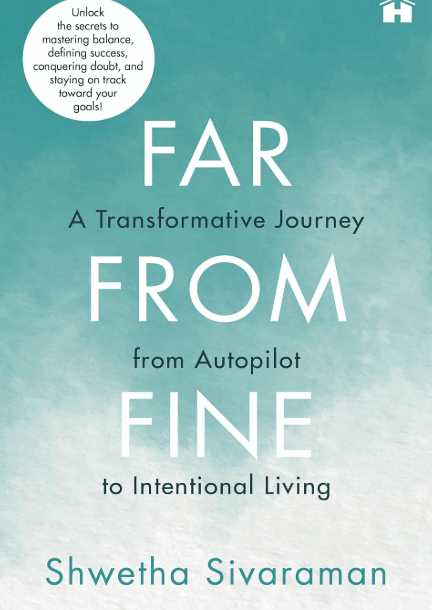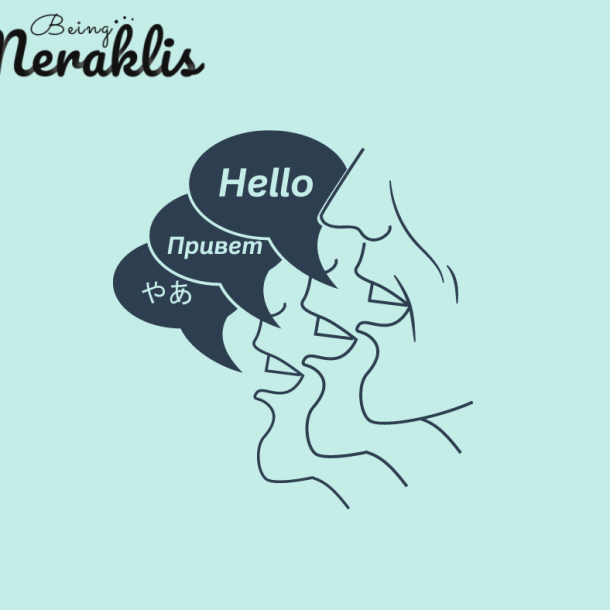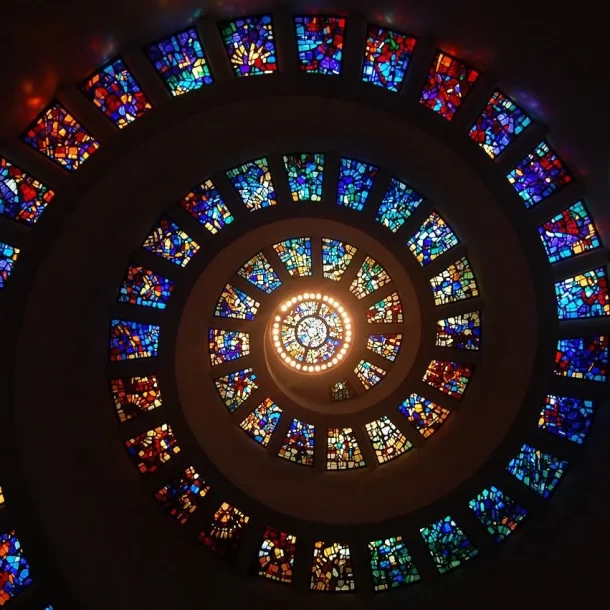
Are you someone who identifies as a seeker? Constantly reading, signing up for one course after another in a quest for knowledge? Like an unquenchable thirst to know more, to keep learning no matter what?
Well, you are not alone. Most of us today spend inordinate time, energy, and attention, accumulating knowledge all our lives. This could be for many reasons.
We seek knowledge for all the wrong reasons:
#1 Because we feel like an Imposter – We believe we are not good enough and seeking knowledge is a way for us to cover up our insecurities. Maybe if we knew enough, we’d not constantly feel like a fraud.
#2 Because we fear Stagnation – We are so wired in our productivity conditioning to keep learning and growing, we are afraid we may stop growing if we don’t learn.
#3 Because we fear Abandonment – What if others keep growing and we are left behind? We fear becoming redundant, so we keep pursuing one certification after the next in a desperate attempt to stay relevant.
#4 Because we don’t want to be Vulnerable – We seek knowledge as a way of keeping ourselves busy so we don’t have to confront that we don’t quite know how to act on our dreams. To avoid feeling vulnerable, we keep ourselves busy learning.
Seeking knowledge has become a distraction to avoid sitting with our inner feelings of inadequacy and worthiness. Rarely a few of us seek knowledge because we are genuinely curious to learn about something.
But the challenge is not where we come from, but what we do next.
Most of us stop there. We sign up for one course after the next gathering information from every source. But this accumulation is useless in today’s information era. Thanks to the internet, information is but a click away on Google. So there’s no purpose that’s met by gathering more knowledge or facts.
The real alchemy in our 21st century internet-powered era is converting knowledge to wisdom. What’s the difference you might ask – the difference is application. Don’t trust me, hear Seneca’s take on it.
Seneca on the right way to seek knowledge
As Seneca says beautifully, “It(seeking knowledge) is not an entertainment to be taken up for delight or to give a taste to our leisure, but it should fashion the mind, govern our actions, and tell us what we are to do and what avoid.”
Three things stand out to me on Seneca’s Reasoning:
- It should change our ways of thinking – All knowledge we seek is to elevate the mind. New knowledge must open up the horizons of our minds and enhance the way we think.
- It must translate to our behaviours – Knowledge is useless unless it translates into our actions and reactions. If we continue acting as per our conditioned behavioural patterns, the information we gathered was a wasteful exercise for it didn’t drive change. When we translate knowledge to wisdom it changes how we respond to situations and the world around us.
- It should upgrade our beliefs – What should we do, What should we avoid stem from the beliefs and value systems we hold. When we take the knowledge we seek to go a step further and transform our belief systems to guide our thoughts and actions, it becomes wisdom.
For any learning to be complete it must change our thoughts and actions and guide us on how we should navigate life and decisions.
Indic Wisdom distinguishes knowledge and knowing.
Knowledge about something and knowing something are two different things that the Indic Scriptures recognised and discerned way back in time. Krishna makes this distinction clear in the Gita that knowledge that arises from within as a consequence of swadhyaya or self-study is wisdom.
In Chapter 4, Verse 38, Krishna says,
न हि ज्ञानेन सदृशं पवित्रमिह विद्यते |
तत्स्वयं योगसंसिद्ध: कालेनात्मनि विन्दति || 38||
na hi jñānena sadṛiśhaṁ pavitramiha vidyate
tatsvayaṁ yogasansiddhaḥ kālenātmani vindati
“In this world, there is nothing as purifying as divine knowledge. One who has attained purity of mind through prolonged practice of Yog, receives such knowledge within the heart, in due course of time.”
If we don’t spend time contemplating what we learned and integrate the learnings into our daily lives, knowledge remains just pieces of information. Reading from scriptures, studying and obtaining certificates is pointless unless it becomes embodied wisdom.
Patanjali shares similar insights in Yoga Sutras Chapter 1, Sutra 49
श्रुतानुमानप्रज्ञाभ्यामन्यविषया विशेषार्थत्वात्॥४९॥
śhrutānumāna-prajñābhyām anya-viṣhayā viśheṣhārthatvāt
“It is different from knowing based on oral transmission and inference, as the purpose of the object is distinct.”
When we directly experience knowledge, we transform it into knowing. Then it’s a real lived experience. It’s living knowledge or intelligence. That is what need more of in today’s times.
But how does one go about turning knowledge into wisdom?
Indic Scriptures gave the answer to this question too. While I learned it in my Vedanta studies, I believe this is quoted from the Brihadaranyaka Upanishad where it states that there are 3 levels of learning.
- Shravana – Where we listen to or read words from learned souls. This is the first part of learning and where most of us generally stop once we have gathered or acquired new knowledge. Shravana is about listening wholeheartedly without prejudices and biases to absorb the knowledge from the person imparting it.
- Manana – Then comes stage 2 where contemplate or reflect on the learnings. This is when we go back to the information gathered and reflect on it. We compare and contrast it with our current mental models and explore how we’d like to adapt our ways of thinking based on this new knowledge we acquired. This step requires critical thinking and discernment to decide what stays and what we want to discard.
- Nidhidhyasana – Stage 3 of learning is to meditate upon it or in our case integrate/embody the learnings in our daily lives. This means translating that knowledge into actions in our daily routines and converting it to habits till it becomes habitual and merges with our identity of who we are. This is an outcome if we do steps 1 and 2 well.
Meraklis Insight
Keep learning. But don’t forget to reflect, integrate, and embody the knowledge to turn it into wisdom. This is the real flex we need to Thrive Consciously.



